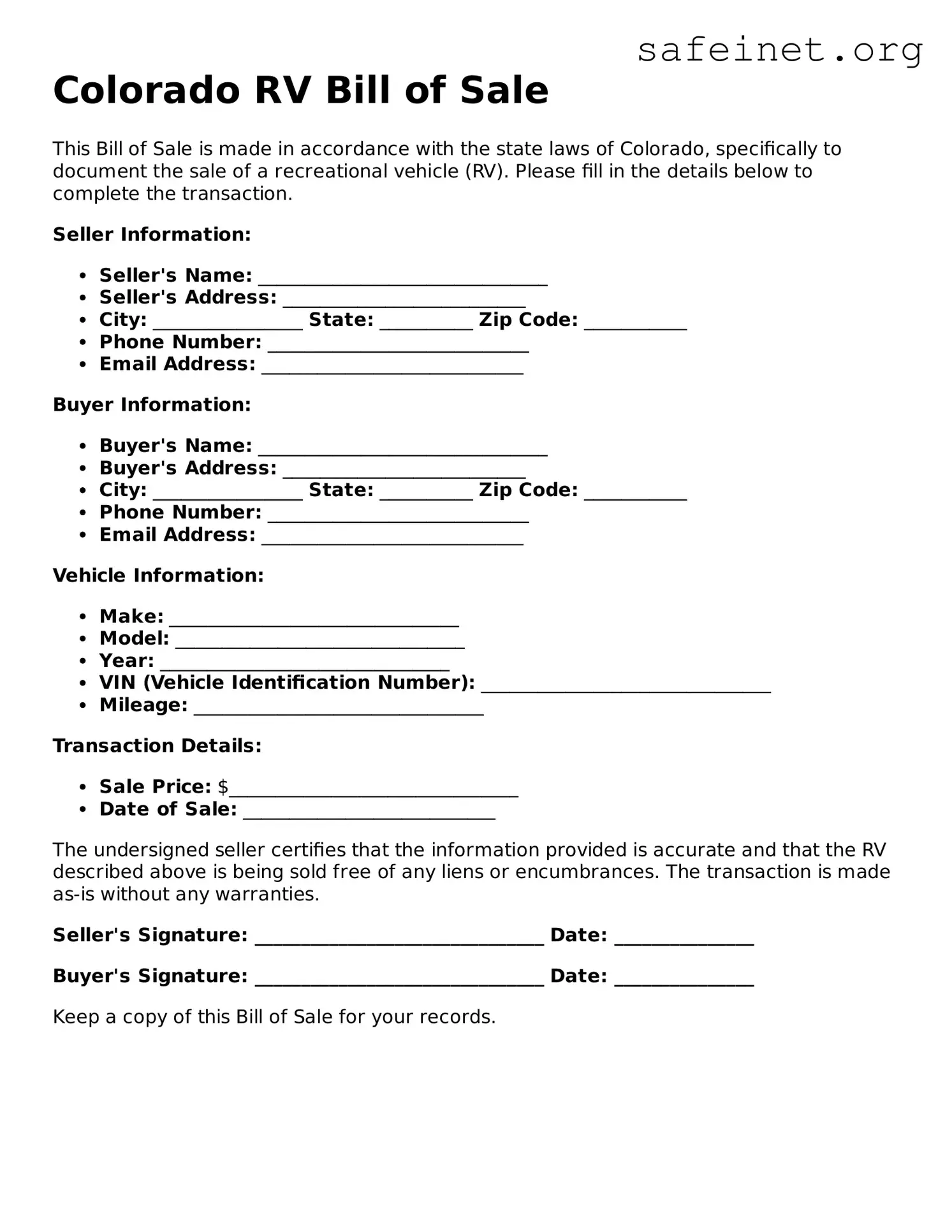What is a Colorado RV Bill of Sale form?
A Colorado RV Bill of Sale is a legal document used during the sale or transfer of ownership of a recreational vehicle in Colorado. It includes essential details about the transaction, such as the buyer's and seller's information, the vehicle's identification number (VIN), make, model, year, and sales price. This document serves as proof of the sale and can be used when registering the RV with the Colorado Department of Revenue.
Why is a Bill of Sale necessary when selling an RV?
The Bill of Sale is crucial for both parties involved in the transaction. For the seller, it provides evidence that the RV has been sold and protects against future claims or liabilities associated with the vehicle. For the buyer, the Bill of Sale confirms ownership and is often required for registration. Additionally, it can be a safeguard against potential disputes regarding the sale details.
What information should be included in the Colorado RV Bill of Sale?
Essential details to include are the names and addresses of both the buyer and seller, the RV's VIN, make, model, year, color, the agreed sales price, and the date of the transaction. Including any terms of the sale, such as warranties or conditions, is also advisable. Clear and accurate information helps ensure a smooth transfer and prevents misunderstandings in the future.
Is the Bill of Sale required to register an RV in Colorado?
Yes, when registering an RV in Colorado, the Bill of Sale is typically required. The Colorado Department of Revenue uses it to verify ownership and the details of the sale. Along with the Bill of Sale, other documents may be necessary, such as proof of insurance and a title transfer, depending on the situation.
Can a Bill of Sale be written by hand?
Yes, a Bill of Sale can be handwritten as long as it includes all the necessary information and is legible. However, using a standardized form can help ensure that all important details are captured and presented clearly. Templates and forms are often available online to simplify this process.
What should I do if I lose the Bill of Sale?
If the Bill of Sale is lost, the seller can draft a new document. It should include all the original transaction details and be signed by both parties. This new document can serve as a replacement and provides a record of the sale. If necessary, consider having the new Bill of Sale notarized for added validity.
Is there a specific format for the Colorado RV Bill of Sale?
While there is no officially mandated format for the Colorado RV Bill of Sale, it must contain specific information to be valid. Utilizing a template can be beneficial, as it often includes all required fields. Ensure that all relevant details are present, and the document is dated and signed by both parties for proper documentation.
